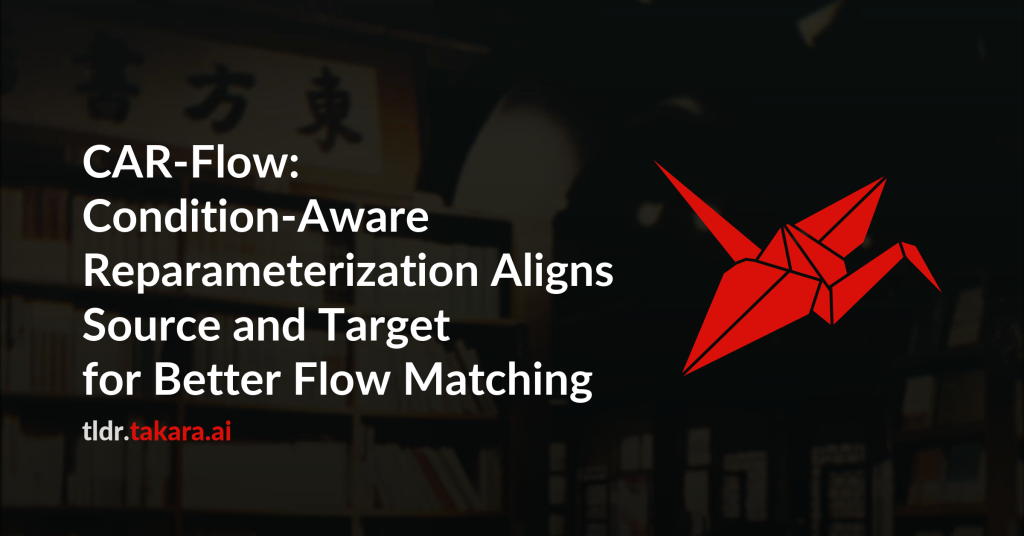Conditional generative modeling aims to learn a conditional data distribution
from samples containing data-condition pairs. For this, diffusion and
flow-based methods have attained compelling results. These methods use a
learned (flow) model to transport an initial standard Gaussian noise that
ignores the condition to the conditional data distribution. The model is hence
required to learn both mass transport and conditional injection. To ease the
demand on the model, we propose Condition-Aware Reparameterization for Flow
Matching (CAR-Flow) — a lightweight, learned shift that conditions the source,
the target, or both distributions. By relocating these distributions, CAR-Flow
shortens the probability path the model must learn, leading to faster training
in practice. On low-dimensional synthetic data, we visualize and quantify the
effects of CAR. On higher-dimensional natural image data (ImageNet-256),
equipping SiT-XL/2 with CAR-Flow reduces FID from 2.07 to 1.68, while
introducing less than 0.6% additional parameters.

